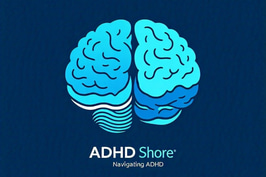Understanding ADHD: Symptoms, Causes, and Diagnosis
1/10/20254 min read


Core Symptoms of ADHD
Attention Deficit Hyperactivity Disorder (ADHD) is characterized primarily by three core symptoms: inattention, hyperactivity, and impulsivity. Understanding these symptoms is crucial, as they can manifest differently across various age groups, impacting daily life in unique ways.
Inattention is often the most recognized symptom of ADHD. Individuals may struggle to focus on tasks, frequently making careless mistakes in schoolwork or other activities. Children with ADHD might find it challenging to complete homework, often losing track of assignments or forgetting necessary materials. Adolescents may exhibit similar patterns, resulting in declining academic performance and difficulty organizing their time. In adults, inattention can manifest as trouble managing work responsibilities, leading to missed deadlines or overlooked details.
Hyperactivity, the second core symptom, is evident in excessive movement and an inability to remain seated in situations where it is expected. For children, this might translate to being unable to stay still during class, asking multiple questions in a short time, or fidgeting continuously. As children transition into adolescence, hyperactivity may diminish but can still surface as restlessness or a feeling of being "on the go." In adults, hyperactivity may present as an overwhelming need to engage in several activities at once, causing significant stress and disorganization.
Lastly, impulsivity is characterized by hasty actions without considering the consequences. This symptom can lead to risky behavior, such as interrupting conversations, making abrupt decisions, or engaging in unsafe activities. For children, this might look like blurting out answers in class or difficulty waiting for their turn during play. Adolescents may display impulsivity through rash decisions related to friendships and substance use, while adults often struggle with impulsive spending or emotional outbursts, affecting their relationships and careers.
These symptoms significantly impact daily life for individuals across all age groups, affecting academic performance, occupational functioning, and social relationships. Consequently, understanding these core symptoms is essential in recognizing and diagnosing ADHD, paving the way for appropriate support and interventions.
Potential Causes of ADHD
Attention Deficit Hyperactivity Disorder (ADHD) is a complex neurodevelopmental condition that affects individuals in various ways. Research indicates that its causes are multifaceted, stemming from a combination of genetic and environmental factors. Family studies have shown that ADHD tends to run in families, suggesting a hereditary component. Twin studies also support this notion, revealing a higher concordance rate for ADHD among identical twins compared to fraternal twins. This genetic predisposition points to the likelihood that specific inherited traits may influence the development of ADHD.
In addition to genetics, environmental factors play a crucial role in the onset of ADHD. Prenatal exposure to certain substances such as tobacco, alcohol, and drugs has been linked to an increased risk of ADHD symptoms in children. Furthermore, complications during pregnancy and delivery, such as low birth weight or prematurity, have been associated with a higher likelihood of developing the disorder. Early childhood experiences, including exposure to lead and other environmental toxins, as well as adverse social conditions, can also contribute to the manifestation of ADHD in offspring.
Common myths surrounding ADHD suggest that poor parenting or social conditions alone are responsible for its development. However, it is vital to understand that ADHD is not solely caused by these factors. It is essential to recognize the disorder's biological basis, which interacts with various environmental influences throughout an individual’s life. This understanding reinforces the complexity of ADHD, as it results from an interplay between genetic vulnerabilities and environmental challenges. As research continues to evolve, it becomes increasingly clear that a multifactorial approach is necessary to fully comprehend the potential causes of ADHD.
Diagnosis of ADHD
The diagnosis of Attention Deficit Hyperactivity Disorder (ADHD) is a multifaceted process that requires the expertise of various healthcare professionals. According to the Diagnostic and Statistical Manual of Mental Disorders, Fifth Edition (DSM-5), the diagnostic criteria for ADHD encompass a persistent pattern of inattention and/or hyperactivity-impulsivity that interferes with functioning or development. This pattern must be evident in two or more settings, such as home and school, and must significantly impair social, academic, or occupational functioning.
A comprehensive evaluation is imperative to ensure an accurate diagnosis. Initially, this may involve questionnaires or behavior rating scales completed by parents, teachers, and sometimes the individuals themselves. These tools assist in gathering essential information about the individual's behavior in different environments. Moreover, healthcare professionals will consider medical history, developmental milestones, and any coexisting conditions that could influence the symptoms exhibited. Distinguishing ADHD from other conditions, such as learning disabilities or mood disorders, is crucial as these disorders may present overlapping symptoms but require different interventions.
Psychologists, pediatricians, and psychiatrists play significant roles in the diagnosis of ADHD. Each professional contributes their unique expertise; pediatricians often conduct initial screenings, while psychologists may focus on cognitive testing and behavioral assessments. Psychiatrists, particularly those specializing in childhood disorders, may be involved in evaluating the necessity of medication and ongoing treatment plans. Furthermore, collaboration among these professionals fosters a holistic understanding of the individual's needs.
Despite advancements in understanding ADHD, several challenges and misconceptions still exist surrounding its diagnosis. For example, many associate ADHD solely with childhood, though it can persist into adulthood. Additionally, societal misconceptions may lead to stigmatization, complicating the diagnosis process. Ultimately, an accurate ADHD diagnosis is essential for ensuring appropriate care and intervention, enabling individuals to thrive despite their challenges.
Managing ADHD: Next Steps and Resources
Following a diagnosis of Attention Deficit Hyperactivity Disorder (ADHD), individuals and families often seek clarity on the next steps to take in managing the condition effectively. A comprehensive approach may incorporate pharmacological treatments, behavioral therapies, and lifestyle adjustments to enhance daily functioning and well-being.
Pharmacological treatments, including stimulant medications such as methylphenidate and amphetamines, are commonly prescribed to help improve concentration and control impulsivity. These medications can be effective in reducing ADHD symptoms; however, it is essential to work closely with a healthcare provider to monitor efficacy and any potential side effects. Non-stimulant medications, such as atomoxetine, may also be considered as an alternative, particularly for those who experience concerns with stimulants.
Behavioral therapies play a crucial role in managing ADHD, especially when tailored to address specific challenges associated with the disorder. Cognitive-behavioral therapy (CBT) is often employed to help individuals develop coping strategies, improve organizational skills, and enhance emotional regulation. Furthermore, family therapy can facilitate improved communication and understanding among family members, providing essential support for those living with ADHD.
Lifestyle changes can significantly impact the management of ADHD symptoms. Regular physical activity, a balanced diet, and sufficient sleep can improve focus and general health. Implementing structured routines and breaking tasks into manageable steps can also help individuals with ADHD navigate daily responsibilities more effectively.
In addition to treatment options, numerous resources are available for individuals with ADHD and their families. Support groups offer a platform to share experiences, while educational websites provide valuable information on managing the condition. Proactive engagement with these resources can empower individuals and families to enhance their quality of life while promoting effective strategies for symptom management.
